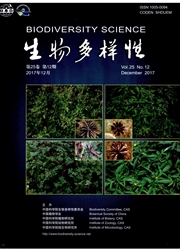

 中文摘要:
中文摘要:
传粉动物为许多植物尤其是作物提供了重要的传粉服务,在保障全球粮食安全和人类福祉、缓冲气候变化对作物产量的影响等方面都发挥着重要的作用。然而来自全球土地利用变化、化学农药使用、外来物种入侵及气候变化等的威胁,导致传粉动物的多样性下降并造成了依赖动物传粉的作物产量和品质的下降。针对这一情况,作者提出了农业景观传粉动物多样性保护和利用的3种主要途径:(1)改善生产管理,例如减少化学农药的使用、适当地采取有机种植;(2)促进景观多样性,包括创建适宜野生传粉者的半自然生境、保护高价值的自然生境、作物多样化、合理配置资源和生境的空间分布;(3)加强对本土传粉动物的保护和开发利用。文章最后提出,为进一步提升传粉服务,还需加强对传粉者的生物学特征、传粉服务的需求与供给现状、影响传粉动物多样性和传粉服务的农作措施和景观因素等方面的研究。
 英文摘要:
英文摘要:
Pollinators provide the vital process of pollination to plants. Maintaining diverse pollinators in ecosystems is essential to global food security, human welfare, and to buffer the negative ecological impacts of climate change. Globally, pollinators are experiencing serious threats from land use change, chemical pes- ticide use, the introduction of alien invasive species and climate change, leading to a decline in pollinator diversity. This decline can cause decreases in the yield and quality of animal-pollinated crops. Here we propose following three approaches to conserve pollinator diversity and improve pollination services in agricultural landscapes: (1) wildlife-friendly farm practices, such as reduced application of pesticides or conversion to organic farming; (2) promotion of landscape diversity, including conserving and establishing suitable semi-natural habitats, maintaining residual natural habitats, improving crop diversity and optimizing resources or habitats; (3) the use of local pollinator species in industrial applications. Further research is needed examining biological characteristics of pollinator, demand and provision of pollination services, as well as the effects of management practices on pollinator diversity and pollination services.
 同期刊论文项目
同期刊论文项目
 同项目期刊论文
同项目期刊论文
 期刊信息
期刊信息
